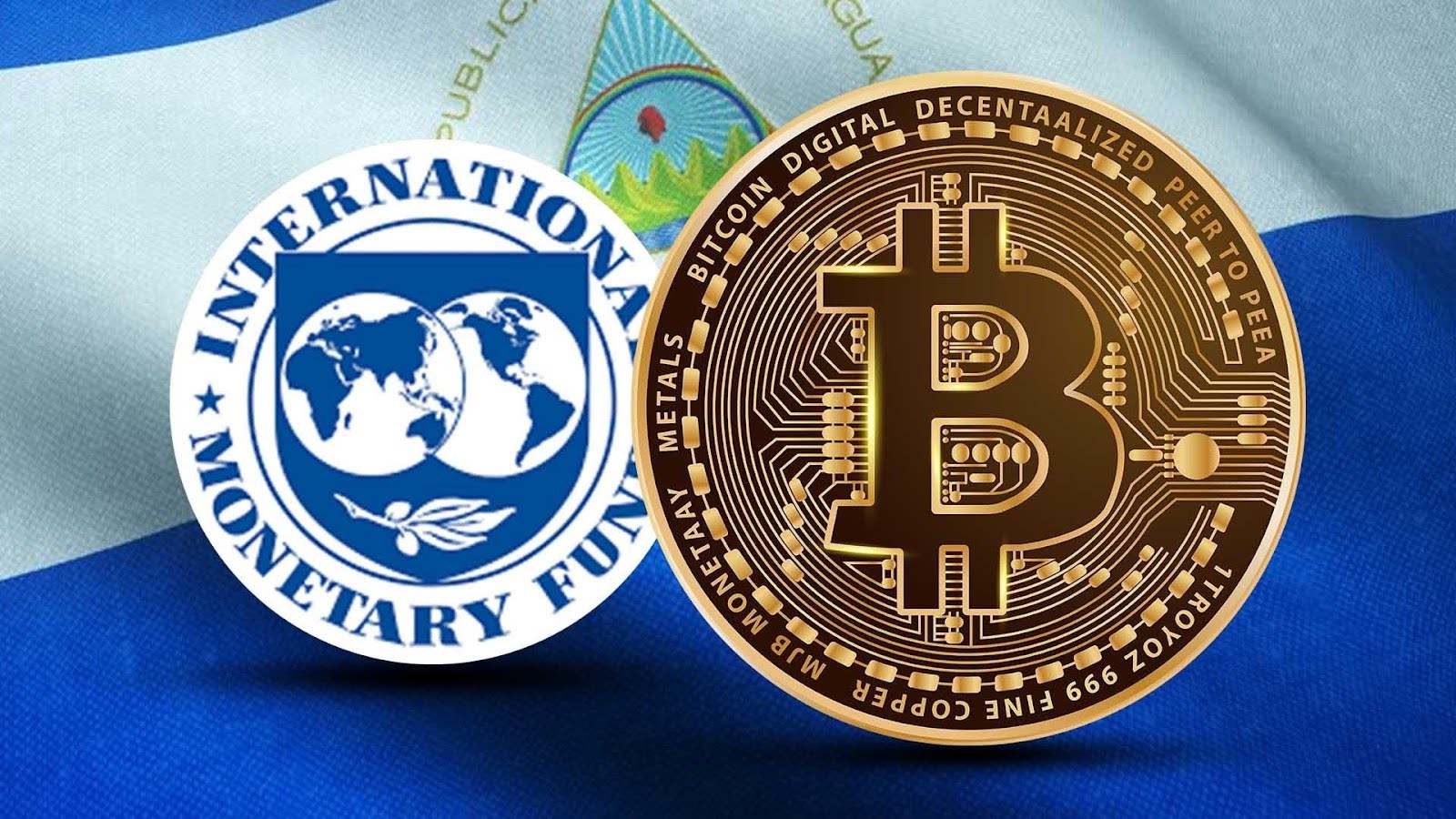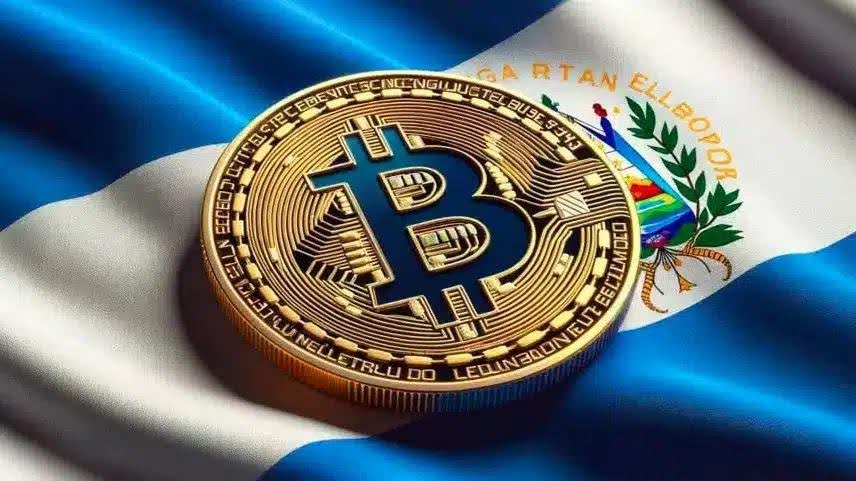IMF’s $120M Deal with El Salvador: Bitcoin Controversy Fuels Uncertainty in Crypto World
Key Takeaways:
- IMF agrees to release nearly $120 million to El Salvador, contingent on Bitcoin-related reforms and fiscal discipline.
- El Salvador must halt expansion of government-held Bitcoin and unwind public sector’s Chivo wallet involvement by July.
- Despite IMF conditions, El Salvador continues purchasing Bitcoin daily, raising questions about compliance and crypto governance.
The International Monetary Fund (IMF) has reached a key point with the government of El Salvador. They have agreed in principle to give them $120 million as part of a larger $1.4 billion Extended Fund Facility (EFF) credit program. This is the first time the 40-month loan agreement to help El Salvador’s economic reforms has been looked at. But Bitcoin is at the center of this deal, and that’s a problem.
El Salvador’s decision to make Bitcoin legal tender in 2021 was the first of its kind in the world and has been heavily criticized. The IMF’s recent conditional clearance shows how hard it is to find a balance between fiscal discipline and crypto innovation. It also shows how tensions are still high between international financial institutions and sovereign crypto goals.

IMF’s First Review: A Tightrope Walk Between Reform and Crypto Ambitions
After months of talks and economic evaluations, IMF personnel and Salvadoran officials came to a staff-level agreement on the first review of the country’s EFF loan. The IMF Executive Board must approve it first, but El Salvador will get about $120 million right away, which will be a big boost to the country’s finances.
El Salvador must satisfy a number of performance targets for this agreement to work. These include structural adjustments and fiscal cuts that are meant to make the financial system more resilient, improve governance, and make things more open. The IMF has a specific condition for Bitcoin holdings: by the end of July 2025, the government must halt the total quantity of Bitcoin stored in all public wallets from rising and the public sector must stop using the Chivo wallet.
Read More: El Salvador’s Crypto Reality Check: 89% of Registered Bitcoin Firms No Longer Active
Bitcoin and the IMF: A Complicated Relationship
The IMF is worried about how Bitcoin could affect the stability of the economy as a whole, the honesty of the financial system, and its openness. The Fund has called for caution in government-led crypto adoption because Bitcoin’s price changes a lot and there is a lot of uncertainty about how it will be regulated. The IMF wants to limit possible fiscal weaknesses and regulatory risks by stopping people from accumulating Bitcoin and separating government wallets from the Chivo payment system.
Even with these problems, El Salvador’s administration, led by President Nayib Bukele, has refused to give up on its crypto goals. According to reports, Bukele’s government is still buying Bitcoin, buying about one Bitcoin a day through the official Bitcoin Office. El Salvador’s Bitcoin reserves are over 6,190 BTC as of late May 2025. This means that the country has made an unrealized gain of around $386 million, which makes it hard for the government to slow down its crypto plan.
Chivo Wallet: The Public Sector’s Crypto Experiment
The Chivo wallet is a big part of El Salvador’s crypto economy, and the government supports it. There was a lot of hype about Chivo at first to attract more people and businesses to adopt Bitcoin, but it has had problems with operations and has come under regulatory scrutiny.
The IMF’s order to stop the public sector from becoming involved in Chivo by July is a key element in the study. The goal of this measure is to protect the government from the ups and downs of the crypto market and keep public money distinct from crypto assets that could be unstable. It also shows that the IMF wants better governance and anti-corruption measures in the administration of crypto-related operations in general.

Fiscal Discipline and Structural Reforms: Foundations for Stability
The IMF agreement stresses fiscal consolidation as a top objective, along with crypto-specific mandates. To fix its budget problems, El Salvador will likely keep slashing wages and limiting current spending. A new Fiscal Sustainability Law is about to be passed, and its goal is to make changes to the civil service and pension systems permanent.
These changes are meant to improve the government’s finances and external buffers. They are supported by better oversight of the banking industry and cooperative financial organizations. The accumulation of government deposits at the Central Bank, bolstered by financing from international partners, will further stabilize reserves.
The Ongoing Crypto Debate: Compliance or Defiance?
The relationship between El Salvador’s crypto policy and the IMF’s criteria shows that there is still a dispute in global finance about how sovereign countries might use crypto innovation without hurting economic stability.
IMF experts said that El Salvador’s economy has been doing well under the program, as shown by lower inflation and steady remittance flows. However, the Fund is still wary about the government’s Bitcoin approach. Rodrigo Valdes, who is in charge of the IMF’s Western Hemisphere Department, said recently that El Salvador passes most performance standards but stressed the importance of keeping its promises over Bitcoin.
Experts in blockchain and international finance say that El Salvador may try to stay technically compliant by buying Bitcoin through quasi-government companies or private channels. This approach could satisfy IMF benchmarks while preserving the country’s crypto momentum.
Global Implications for Crypto Sovereignty
El Salvador’s experience is a model for other countries who are thinking about starting state-led crypto projects. The IMF’s cautious approach may affect how international lenders and regulators work with nations that are adopting digital assets. This episode shows how hard it is to add cryptocurrencies to national financial systems without putting governments at too much danger in terms of taxes and regulations.
El Salvador’s ongoing purchases of Bitcoin despite warnings from the IMF also show how hard it is to make sure that global financial regulation works with decentralized digital innovation.
The post IMF’s $120M Deal with El Salvador: Bitcoin Controversy Fuels Uncertainty in Crypto World appeared first on CryptoNinjas.
CryptoNinjas



















